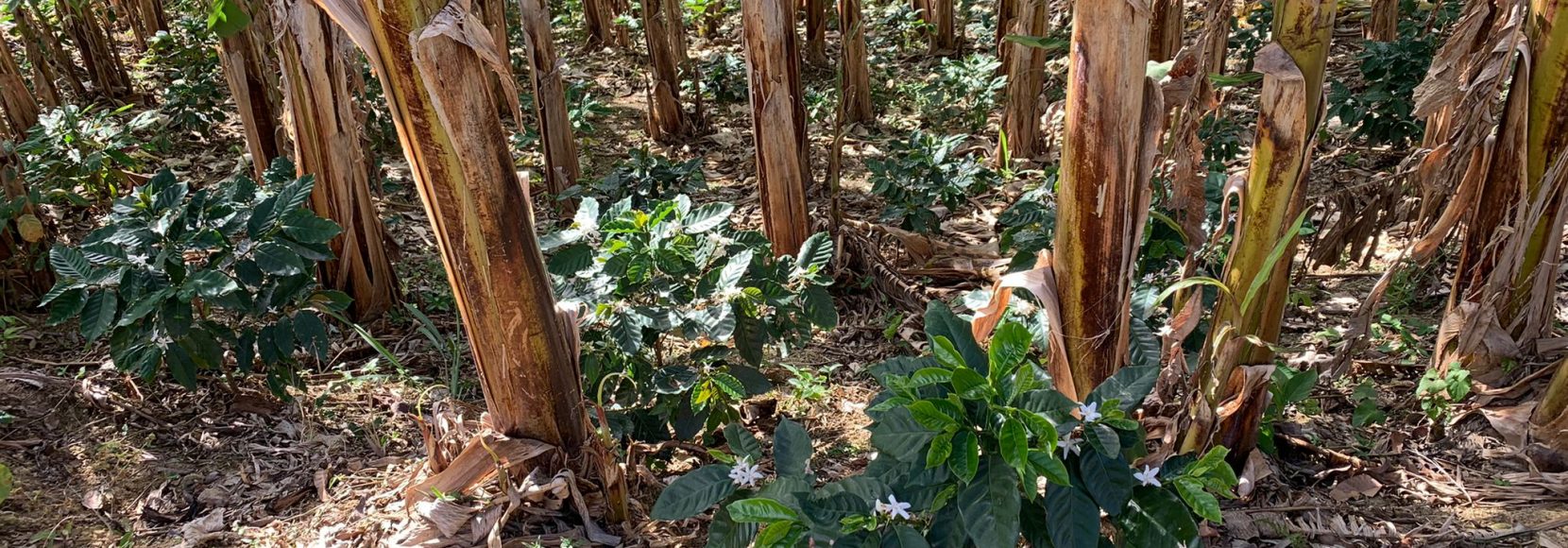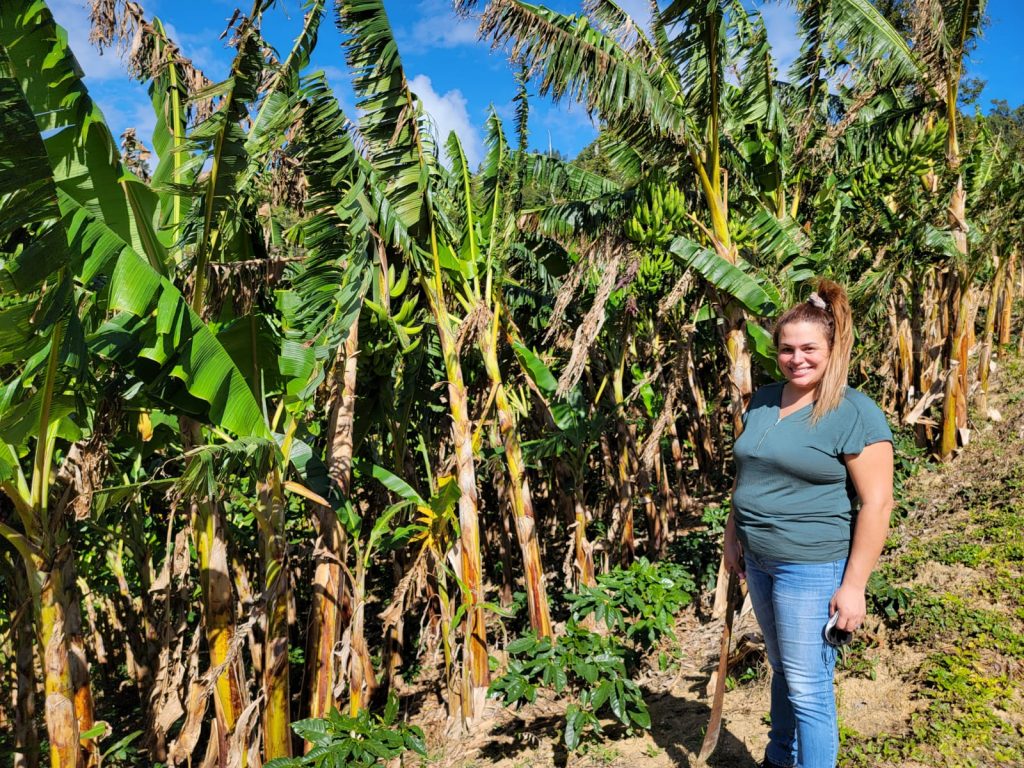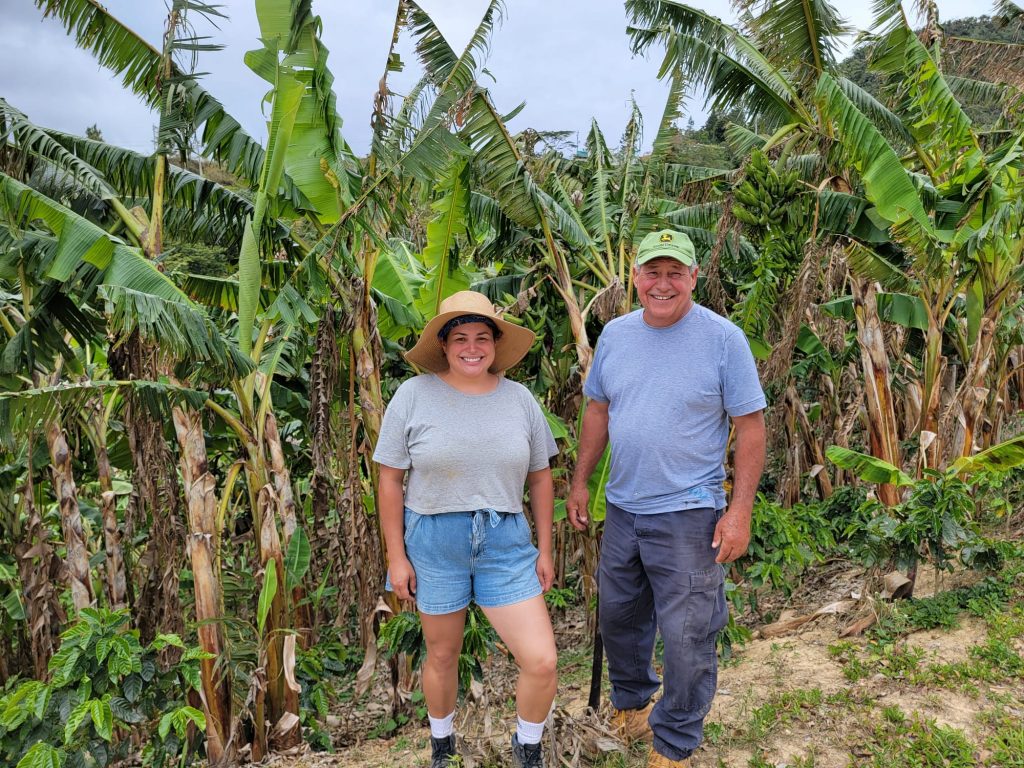
Her Farm Was Destroyed Once. Now This Coffee Farmer in Puerto Rico Faces an Uncertain Future
Nearly five years ago to the day, Hurricane Maria hit Puerto Rico and caused massive damage. Maritza Lopez, a coffee farmer on the island, now searches for a path forward following Hurricane Fiona.
Behind the photos and hurricane updates from Puerto Rico this week are hundreds of farmers like Maritza Lopez.
As of this writing, Maritza was unable to access her farm in order to assess hurricane damage. But as she watched the deluge of rain outside her window from Hurricane Fiona this weekend, she feared that her farm would be destroyed—again.
How Hurricane Maria Affected Puerto Rico’s Coffee Industry
Nearly five years ago to the day, Hurricane Maria hit Puerto Rico and caused massive damage. The island’s coffee industry—long a symbol of cultural pride—was nearly destroyed. Eighty percent of Puerto Rico’s coffee trees were wiped out, taking with them a key source of income for farmers like Maritza.
“On the farm, we didn’t have anything left,” Maritza remembers of that time. “There was only one coffee tree left standing…[Hurricane Maria] took everything. It was hard to start all over again; there were dark times.”
The troubles continued in subsequent years, as a series of earthquakes hit the island in late December 2019, continuing on into 2020. It damaged thousands of homes and left many Puerto Ricans camping out in makeshift shelters or government refugee centers.
Maritza’s family and farm had still not recovered from Hurricane Maria when new misfortunes hit. “And then came the earthquakes. And after that, COVID,” Maritza remembers. “It’s been a challenge for us in Puerto Rico.”

How A Coffee Farmer in Puerto Rico Recovered from Hurricane Maria
But Maritza is a woman who faces challenges head-on. Her farm has been in her family for three generations, but she is the first woman to manage it. This presents its own set of complications, such as when other farmers ask to talk business with her father instead of her.

“I have to do things doubly well, because in this still male-dominated environment, they really think you’re going to fail,” Maritza says. “I don’t take ‘no’ for an answer as long as there are options–no matter what they say or think.”
So in the aftermath of Hurricane Maria, Maritza was determined to fight the odds and to rebuild. She joined the project Revivamos Nuestro Café, a partnership between TechnoServe, Nespresso, the Hispanic Federation, the Rockefeller Foundation, and Colibri Foundation, which works to help Puerto Rican farmers rebuild the coffee industry.
Maritza not only obtained new coffee seedlings to restore her farm, but learned better farming techniques that would help her grow more, better quality coffee. “I came from a family of agriculture, but it was conventional agriculture,” she explains. “I try to do more now. I try to practice [good] agronomy, and composting has helped me a lot.”
New Challenges for Puerto Rico Following Hurricane Fiona
She is aware of the impact of her work, not just on her farm but on her two young daughters, Daniela Sofia and Victoria. “I’m doing this precisely for them because…it’s hard to be a girl in this world, and I want to give them strength and capacity,” Maritza says. “I know they’re watching me and saying, ‘If Mommy can do anything she wants, I can do anything I want’.”
With hard work and a refusal to give up, Maritza eventually managed to coax her farm back to strong production. When we spoke with her in the summer of 2022, her coffee trees were flourishing, and she was convinced of a healthy harvest. Her farm was looking beautiful, she said, comparing it to a phoenix rising from the ashes.
After this weekend, it seems that Maritza’s farm—along with many others on the island—may need to rise, phoenix-like, once again.





